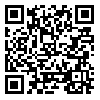Fri, Feb 20, 2026
[Archive]
Volume 36, Issue 1 (1-2022)
Med J Islam Repub Iran 2022 |
Back to browse issues page
Download citation:
BibTeX | RIS | EndNote | Medlars | ProCite | Reference Manager | RefWorks
Send citation to:



BibTeX | RIS | EndNote | Medlars | ProCite | Reference Manager | RefWorks
Send citation to:
Yazdani A, Zahmatkeshan M, Ravangard R, Sharifian R, Shirdel M. Supervised Machine Learning Approach to COVID-19 Detection Based on Clinical Data. Med J Islam Repub Iran 2022; 36 (1) :831-837
URL: http://mjiri.iums.ac.ir/article-1-7762-en.html
URL: http://mjiri.iums.ac.ir/article-1-7762-en.html
Noncommunicable Diseases Research Center, & School of Allied Medical Sciences, Fasa University of Medical Sciences, Fasa, Iran , m.zahmatkeshan@fums.ac.ir
Abstract: (2018 Views)
Background: The new coronavirus has been spreading since the beginning of 2020, and many efforts have been made to develop vaccines to help patients recover. It is now clear that the world needs a rapid solution to curb the spread of COVID-19 worldwide with non-clinical approaches such as artificial intelligence techniques. These approaches can be effective in reducing the burden on the health care system to provide the best possible way to diagnose the COVID-19 epidemic. This study was conducted to use Machine Learning (ML) algorithms for the early detection of COVID-19 in patients.
Methods: This retrospective study used data from hospitals affiliated with Shiraz University of Medical Sciences in Iran. This dataset was collected in the period March to October 2020 andcontained 10055 cases with 63 features. We selected and compared six algorithms: C4.5, support vector machine (SVM), Naive Bayes, logistic Regression (LR), Random Forest, and K-Nearest Neighbor algorithm using Rapid Miner software. The performance of algorithms was measured using evaluation metrics, such as precision, recall, accuracy, and f-measure.
Results: The results of the study show that among the various used classification methods in the diagnosis of coronavirus, SVM (93.41% accuracy) and C4.5 (91.87% accuracy) achieved the highest performance. According to the C4.5 decision tree, "contact with a person who has COVID-19" was considered the most important diagnostic criterion based on the Gini index.
Conclusion: We found that ML approaches enable a reasonable level of accuracy in the diagnosis of COVID-19.
Methods: This retrospective study used data from hospitals affiliated with Shiraz University of Medical Sciences in Iran. This dataset was collected in the period March to October 2020 andcontained 10055 cases with 63 features. We selected and compared six algorithms: C4.5, support vector machine (SVM), Naive Bayes, logistic Regression (LR), Random Forest, and K-Nearest Neighbor algorithm using Rapid Miner software. The performance of algorithms was measured using evaluation metrics, such as precision, recall, accuracy, and f-measure.
Results: The results of the study show that among the various used classification methods in the diagnosis of coronavirus, SVM (93.41% accuracy) and C4.5 (91.87% accuracy) achieved the highest performance. According to the C4.5 decision tree, "contact with a person who has COVID-19" was considered the most important diagnostic criterion based on the Gini index.
Conclusion: We found that ML approaches enable a reasonable level of accuracy in the diagnosis of COVID-19.
Type of Study: Original Research |
Subject:
COVID 19
Send email to the article author
| Rights and permissions | |
 |
This work is licensed under a Creative Commons Attribution-NonCommercial 4.0 International License. |








